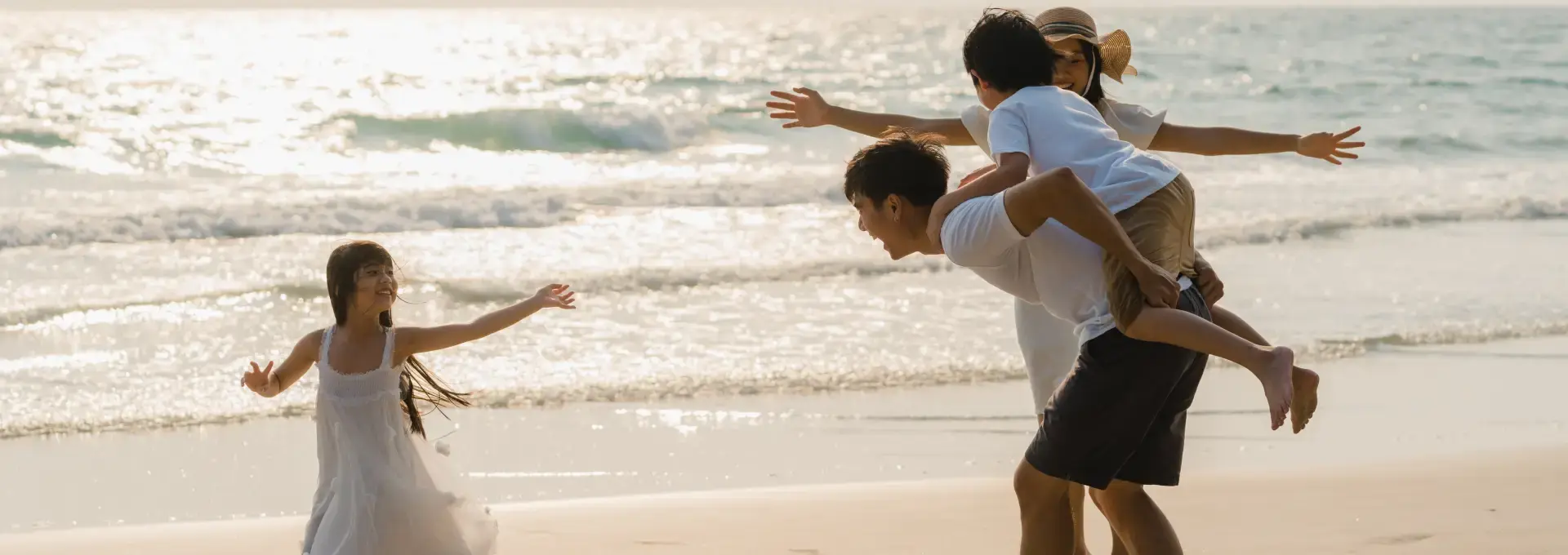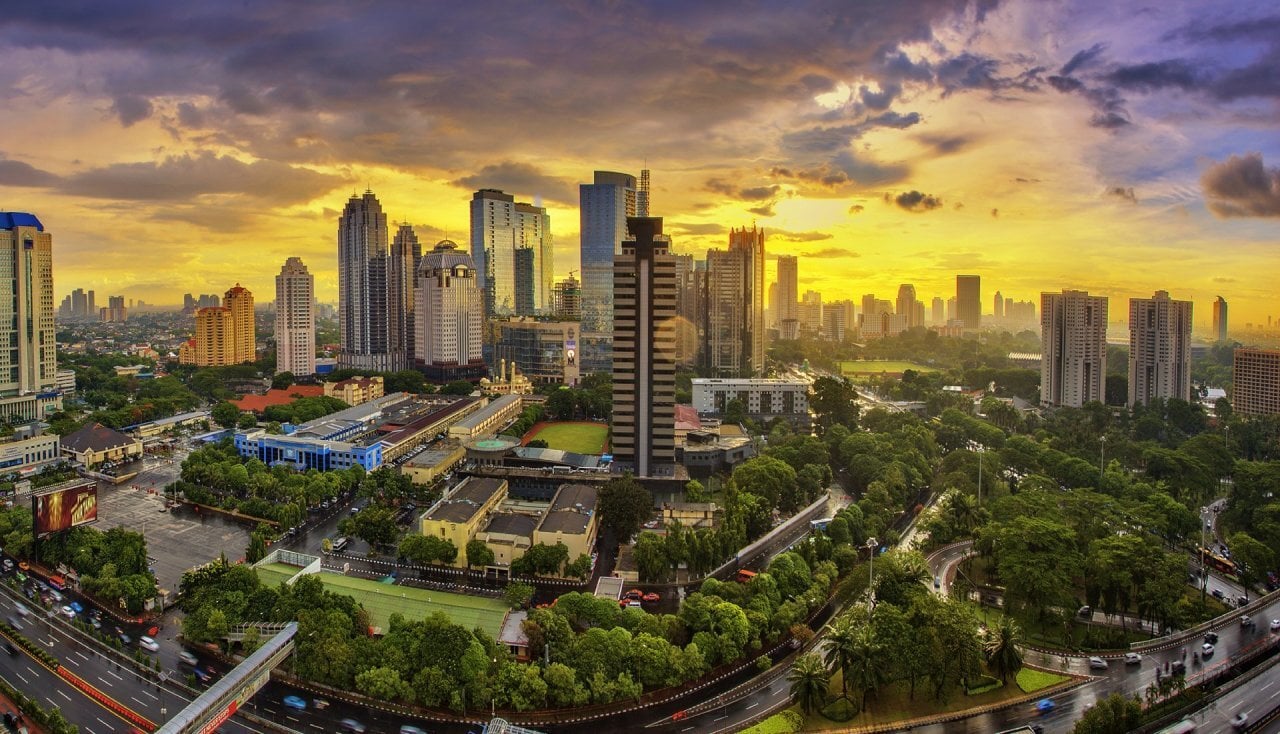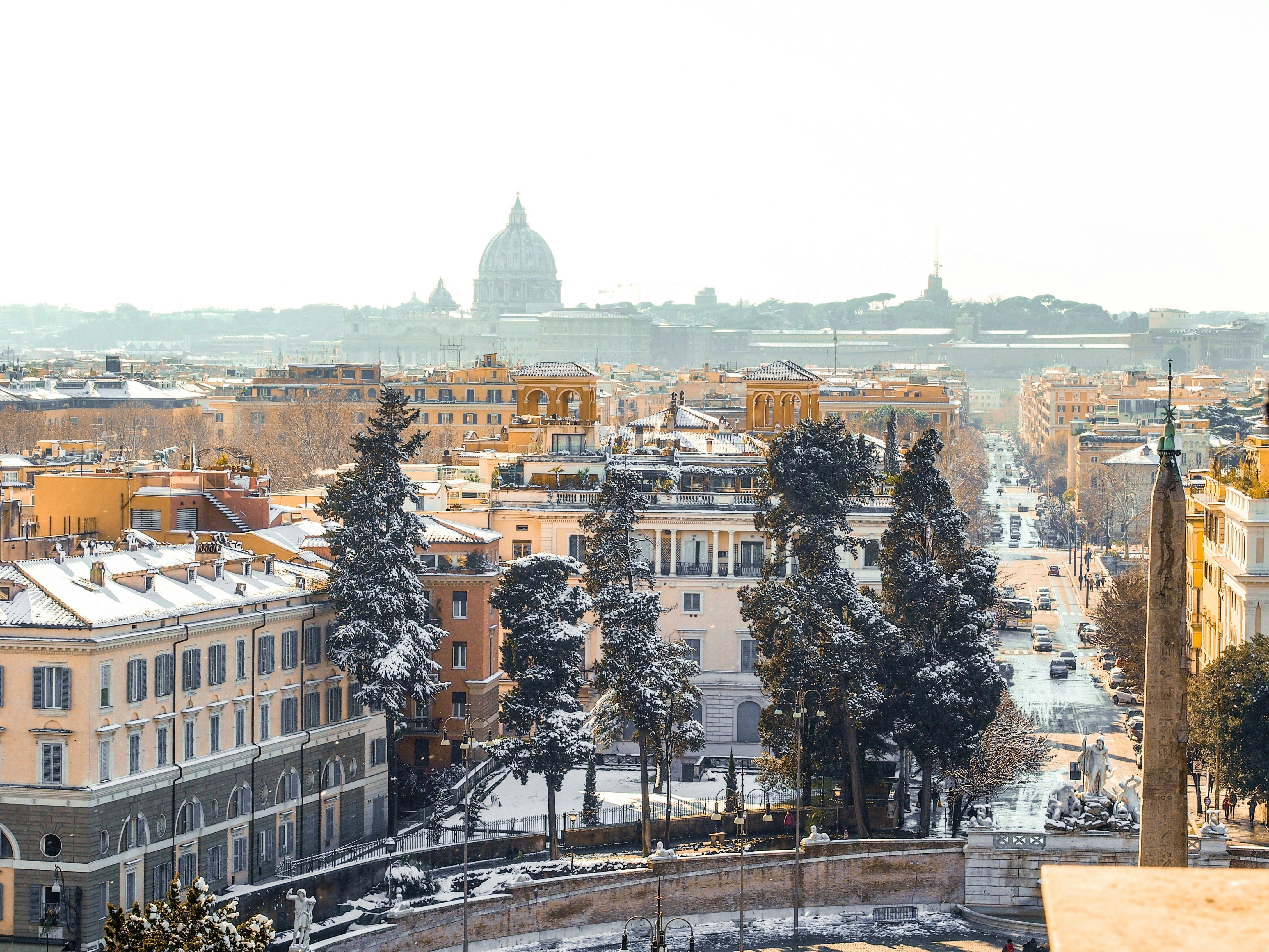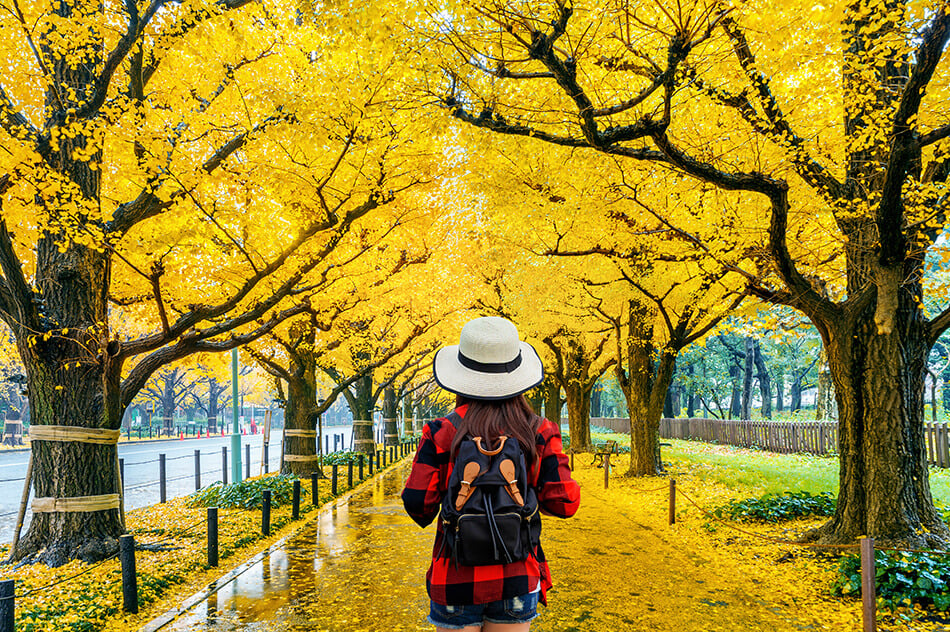What is the Best Time to Visit Fiji?
With crystal clear waters, beautiful beaches, and a tropical climate, Fiji really is a tropical destination that really offers a little slice of heaven on Earth. But, as is the case when visiting any country, the best time to visit Fiji really depends on two things: the weather and what you'd like to see.
At Crown Currency Exchange, we believe that every trip abroad should be as stress-free as possible. That's why we've put together this ultimate guide to the best time to visit Fiji. Here, you'll find information on Fiji weather, Fijian culture, and a month-by-month breakdown of festivals and events, making it easier than ever to plan the perfect trip to Fiji.
What is the Best Time to Visit Fiji for Weather?
The first thing you need to know when it comes to the weather in Fiji is that there are only two seasons: summer and winter. As the country is in the Southern Hemisphere, summer runs from November to April, and winter runs from May to October.
During the summer, the average temperature sits at around 27ºC, although it isn't uncommon for temperatures to soar as high as 30ºC during the height of summer. Summer days in Fiji are long, and the humid weather can make things feel quite muggy at times. It's also the rainy season, but the amount of rainfall varies between islands, with larger islands, including Vanua Levu and Viti Levu, seeing more rain.
Winter is often considered the best time to visit Fiji as temperatures are a little more bearable, averaging 23ºC during June and July. The amount of rainfall drops quite significantly during winter as well, making it easier to explore Fiji and enjoy outdoor activities. The days are shorter in the winter, but you'll still enjoy clear blue skies and warm temperatures.
Visiting Fiji in Summer (November to April)
The wet season, summer in Fiji is characterised by warm temperatures of around 27ºC, sunny days, and rainy afternoons. The humid weather during the summer can lead to tropical cyclones, but these are quite rare, and the islands are well-equipped to deal with them before they become an issue.
Key Events in Summer
- Diwali Festival: Also known as "The Festival of Lights", Diwali is a Hindu festival that is celebrated with the lighting of candles, as well as light shows, fireworks, music, and dancing.
- Hindu Holi: Another of Fiji's Hindu festivals, Holi is commemorative of India's role in Fiji's history and is celebrated by locals throwing coloured powder at each other.
- Fara: Held between December and January, Fara is celebrated by groups of people travelling from house to house and singing accompanied by drums and ukuleles.
- Fijian International Jazz and Blues Festival: One of the most popular music festivals in Fiji, international acts visit Fiji to play old and new material in small, intimate venues throughout Denarau, Viti Levu.
Visiting Fiji in Winter (May to October)
Winter in Fiji is the dry season, making it the most popular time to visit. Temperatures are lower, but certainly not cold, sitting at around 24ºC during the day. As you'd expect from the dry season, there is significantly less rainfall, and the humidity drops as well, removing the risk of cyclones and the shorter days are still packed with sunshine.
Key Events in Winter
- Hibiscus Festival: Often considered Fiji's biggest annual event, the Hibiscus Festival takes place in Suva and sees the crowning of "Miss Hibiscus". There is also a parade and performances to enjoy, as well as stalls to explore.
- South Pacific World Music Festival: Held across three days in November, the South Pacific World Music Festival features artists from all over Fiji playing multiple genres of music.
- Lautoka Sugar Festival: A cross between a food festival and a beauty pageant, Lautoka Sugar Festival sees the crowning of Mr Sugar King and Lady Sugar alongside food stalls, music, and performances.
- Fiji Regatta Week: Hundreds of boats take the Musket Cove for a full day of maritime events, including hobit cat racing and kite flying.
- Bula Festival: Held each July, the Bula Festival celebrates all things Fiji. Beautifully decorated floats are drawn through the streets alongside live music, dancing, food stalls, and more.
- South Indian Fire Walking Festival: This is exactly what it sounds like! A walkway of burning hot coals is laid out on the ground, and local people dressed in yellow walk barefoot across them.
- Fiji Day: One of Fiji's few public holidays, Fiji Day takes place on October 10th and celebrates the country's independence from British colonial rule in 1970.
- Friendly North Festival: Held on Fiji's second-largest island, Vanua Levu, the Friendly North Festival is a week-long party with dancing, live music, and more. Each day also has a different theme, keeping things even more exciting!
What is the Cheapest Month to Visit Fiji?
The cheapest month to visit Fiji is May, as this is the end of summer and sits at the very start of the high seasons. During this time of year, Fiji sees far fewer crowds and tourists, meaning that accommodation will be less expensive, and you'll find that you're able to get the cheapest flights from year round averages as well.
Top tip: Get ahead of the game and buy your Fijian Dollars (FJD) before your trip. This will save you from having to pay expensive exchange rates or fees at the airport, as well as avoid international transaction fees occurring through using your credit or debit cards abroad.
What is the Best Time to Visit Fiji for Events and Festivals?
While winter in Fiji is the most popular time to visit, there are festivals and events that take place all year round. Below, we've put together a guide to Fijian events and festivals for each month of the year, helping you decide the best time to visit based on what you'd like to see and do.
Key Events in January
- New Year's Day: In other parts of the world, New Year's Day is a single-day celebration. In some parts of Fiji, the celebrations last for almost an entire month, with street parties, live music performances, and firework displays taking place throughout January. Festivities are particularly regular across Suda and Navi.
- Fiji Cultural Festival: Celebrating Fiji's diverse traditions and culture, the Fiji Cultural Festival is a must-visit event for anyone looking to learn as much as possible about the history of Fiji. There is traditional dancing and music, as well as food stalls selling delicious Fijian cuisine.
- Fiji Coral Coast Sevens Tournament: One for sports lovers, the Fiji Coral Coast Sevens Tournament showcases the country's best rugby talent in a three-day event, ending with a final where the winning team takes home a prize of FJD $20,000.
Key Events in February
February doesn't see any major events or festivals taking place in Fiji, but that doesn't mean there isn't anything to do. Here are some of our top suggestions if you're planning to visit Fiji in February:
- Explore Naihehe Cave: Extremely popular with tourists, Naihehe Cave is located in Sigatoka Valley and has deep historical roots of tribal warfare, pagan worship, and even cannibalism. Guided tours are the best way to see this incredible piece of Fijian history.
- Surf Mamanuca Islands: Being a quieter time of year, February offers some of the best opportunities to go surfing at the Mamanuca Islands. Favourite surfing spots here include Cloudbreak, Lighthouse, and Tavarua Rights.
- Trek Bouma National Heritage Park: Located on Taveuni Island, Bouma National Heritage Park is a wonderful place to admire Fiji's nature. There are also natural swimming pools you're welcome to cool off in and multiple hiking trails. There's even a myth that the Tagimoucia flower grows here and nowhere else in the world.
Key Events in March
- Holi: Another of Fiji's Hindu festivals, Holi takes place every March and celebrates Krishna and the legend of Holika and Prahlad. Huge bonfires are built and lit on the first night of Holi, followed by a day of paint-throwing in the streets, which represents Krishna's habit of throwing coloured water over milkmaids as a young boy.
- Ram Navami: Ram Navami is also a Hindu festival that takes place in March and celebrates the birth of Lord Rama. A fast is observed on this day, and hymns and mantras are recited in temples throughout the islands ahead of religious processions taking to the streets.
- Visit The Sawa-I-Lau Caves: Located in the Northern Yasawa Islands, the Sawa-I-Lau Caves are one of Fiji's most iconic natural features. Featured in the movie "Blue Lagoon", these limestone caves have beautiful blue waters that you are able to dive and swim in, and there are also guided tours of the caves available.
Key Events in April
- Panguni Uthiram: One of Fiji's many Hindu Festivals, Panguni Uthiram takes place every April and is a special day of worship to Lord Shiva. Idols made from metal and gold are decorated with flowers and jewellery, and a strict fast is observed.
- The Fijian Crosswalk: As Easter approaches, The Fijian Crosswalk takes place and sees both Catholic and Methodise Fijian worshippers come together to walk across Viti Levu, carrying a large cross along the way. People are encouraged to join as the procession makes its way through the streets, offering support in carrying the cross along the way.
- Easter: Easter is a big deal in Fiji, with around 65% of the Fijian population being Christian. Mass takes place throughout the islands, followed by singing and a community feast to celebrate the life of Christ. Many shops and services are closed over the Easter weekend in Fiji, but most tourist services continue to run.
- Take A Safari Tour Of The Sigatoka River: A great activity to do in April, a safari tour of Fiji's iconic Sigatoka River offers the opportunity to see Sigatoka Valley in all its glory, learn about the region's history, and enjoy a traditional Fijian lunch made by the women of the village.
Key Events in May
- Ratu Sir Lala Sukuna Day: Recently reinstated as a public holiday, Ratu Sir Lala Sukuna Day honours Lala Sukuna, who is considered the national father of modern Fiji. The celebrations run throughout the last week of May, and crowds take the streets in a procession to mark the start. Throughout the week, public lectures are held at the Fiji Museum, offering the opportunity to learn more about Lala Sukuna and Fiji's history.
- National Youth Day: Celebrated annually on May 4th, National Youth Day is held to mark the achievements of the country's young citizens in helping to drive Fiji forward and keep working for a bigger, brighter future.
- Fijian International Jazz and Blues Festival: Every May, the Fijian International Jazz and Blues Festival welcomes artists from all over the world. Small events in intimate venues take place across a three-day weekend in Denarau, Viti Levu, and many are free to attend.
- Go Diving On Great Astrolabe Reef: Fiji is well-known for its incredible coral reefs, and the Great Astrolabe Reef is revered as one of the best diving spots in the world. Here, you'll get up close and personal with manta rays, tuna, giant trevally, and hundreds of smaller tropical fish.
Key Events in June
- South Pacific World Music Festival: Another great event for music lovers, the South Pacific World Music Festival brings together a collection of artists from across Fiji. There are different genres to enjoy, along with other activities, including daily meditation sessions, pool parties, and tree planting.
- Hike Mount Batilamu: Often referred to as "The Sleeping Giant", Mount Batilamu sits within Koroyanitu National Heritage Park and offers panoramic views across the Mamanuca and Yasawa Islands. This is a great activity for those looking to explore Fiji, and the cooler June weather makes it an easier hike than in the summer months.
- Go Diving At Beqa Lagoon: A diving session at Bega Lagoon gives you the opportunity to swim with sharks and manta rays, as well as smaller marine creatures. The water temperatures remain around 26ºC here all year round too, making it a great choice for diving during Fiji's cooler winter months.
Key Events in July
- Bula Festival: Spanning three days, the Bula Festival takes place every July in Fiji and features music, dancing, spoken word, theatrical performances, circus acts, and more. Around 10,000 people attend every year, making it one of the biggest Festivals in Fiji.
- South Indian Fire Walking Festival: Held in Suva Point, the South Indian Fire Walking Festival sees local people bathe in the sea, dress in yellow, and then walk barefoot across a path of hot coals. There are also traditional piercings and body paintings taking place throughout the day, carried out by Hindu priests.
- Go Diving At Rainbow Reef: Rainbow Reef is one of Fiji's most popular free diving spots, and it is abuzz with life in July. Here, you'll spot over 300 different types of coral and over 1,200 species of tropical fish.
Key Events in August
- Hibiscus Festival: Every August, the Hibiscus Festival is held to celebrate Fiji's national flower. It's also one of the biggest festivals in Fiji, and events include a hibiscus parade, traditional dancing, live music, and a hibiscus judging contest. Someone will also be crowned "Miss Hibiscus" in a small beauty contest.
- Friendly North Festival: Traditional Fijian dancing and song can be enjoyed at the Friendly North Festival, which takes place every August in Vanua Levu. Each day of the festival has a different theme, making it an ever-changing event that you can visit each day and see something completely different.
- Fiji Regatta Week: Held in Musket Cove, in the Mamanuca Island Group, Fiji Regatta Week is the ideal event for anyone who loves boats. Races take place throughout the week, and there are events for tourists to take part in as well, including a stand up paddle board race and kite flying.
- Swim With Manta Rays At Barefoot Island: August is a great time of year to visit Barefoot Island and swim with manta rays. It also has some of the most beautiful white sand beaches on Earth, so even if you don't fancy a swim, you can kick back and relax in the sunshine.
Key Events in September
- Lautoka Sugar Festival: A must-visit event for anyone with a sweet tooth, the Lautoka Sugar Festival celebrates Fiji's sugar production with stalls selling all manner of sweet treats. There are also extravagant floats decorated with sugar cane, marching bands, and fair rides. In true Fijian fashion, a mini beauty contest also takes place, where two people will be crowned Mr Sugar King and Lady Sugar.
- Coral Coast Festival: Held in Sigatoka, the Coral Coast Festival is an annual event that takes place every October. Parades with live music and traditional dancing hit the streets, and there are loads of food stalls selling delicious traditional dishes and drinks to enjoy.
Key Events in October
- Fiji Day: Every October 10th, Fiji celebrates Constitution Day, which marks the date the country was freed from British Colonial Rule. Flag-raising ceremonies are held across the islands, followed by speeches ahead of processions and live entertainment.
- Rising Of The Balolo: One of Fiji's natural wonders, the Rising of the Balolo happens every October when balolo (edible sea worms) rise to the surface of the ocean from the underlying reefs. Night time fishing takes place to catch these worms, as well as the fish that feed on them.
- Visit The Garden Of The Sleeping Giant: Those looking to explore as much of Fiji's natural beauty as possible should definitely consider visiting The Garden of the Sleeping Giant in October. Here, you'll find a collection of 40 orchids and beautiful lily ponds. You'll also get the opportunity to discover the dense surrounding rainforest and all the wildlife it contains.
Key Events in November
- Diwali: This five-day-long Hindu festival is the biggest event in Fiji during November. Known as "The Festival of Lights", candle-lighting ceremonies are held through the streets, there are amazing LED and laser light shows, and live music and dancing. The week's festivities end with a huge fireworks display that is quite simply unmissable.
- Visit The Sri Siva Subramaniya Temple: November is the best time to visit this incredible temple, as during the Diwali celebrations, it is covered with lights and is almost indescribably beautiful at night. Even outside of Diwali, a visit to Sri Siva Subramaniya Temple is a must, as it is the largest Hindu temple in the Southern Hemisphere, featuring ornate decorations and offering a rare sight into traditional Dravidian architecture.
Key Events in December
- Fara Festival: Held in mid-December and running into January, the Fara Festival takes place on the island of Rotuma and celebrates hospitality. Dancing can be seen in the streets, accompanied by live music and singing, as people travel from door to door in a "carolling marathon", inviting others to join them.
- New Year's Eve Festivals: New Year's Eve is a big deal in Fiji, and there are multiple festivals that take place across the islands to mark the end of the holiday season. Larger cities usher in the New Year with firework displays, live music, and dancing, while in villages, people splash each other with water and play drums. Wherever you are in Fiji, one thing's for sure - you're bound to a memorable New Year's Eve!
- Relax On The Mamanuca Group: With the weather being so good in December, it only makes sense to take a day and relax on one of the 28 islands that make up the Mamanuca Group. There are loads of activities to do, depending on your preferences as well, from diving with sharks to relaxing on white sand beaches.
How Many Days Do You Need to See Fiji?
Since Fiji is so remote and there's so much to see and do, we recommend spending at least ten days in the country. This will allow you enough time to go island hopping, attend some amazing festivals, enjoy snorkelling in the reefs, and spend a few days relaxing on one of the glorious beaches.
Final Thoughts
When it comes to planning your Fiji holiday, one of the most important things to keep in mind is that the seasons aren't the same as many other destinations, and instead of a spring, summer, autumn, and winter split, you're dealing with a wet and dry season. Fiji's wet season takes place from November to April, during which temperatures are higher, and there is hot and humid weather. Fiji's dry season occurs from May to October, and temperatures are lower, but the days continue to be sunny. So, in order to decide the best time to visit Fiji, think about your weather preferences and use our month-by-month breakdown of events and activities to make planning so much easier.
You can also make things much easier by buying Fijian Dollars ahead of your trip. Visit your nearest Crown Currency Exchange to get competitive rates guaranteed without commission or fees. Our knowledgeable and friendly team are able to help you with large and small transactions alike, and with cash in store, we'll take all of the stress out of buying your Fijian Dollars.
FAQs
Will I need cash for my visit to Fiji?
Yes, it's good to have some cash for small purchases, tips, and places that don't accept cards.
Which currency is used in Fiji?
Fiji uses the Fijian dollar (FJD).
Is Fiji considered an expensive destination?
Fiji can cater to all budgets. While it offers luxury experiences, budget-conscious travellers can also find affordable options.





.png)

